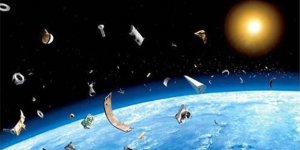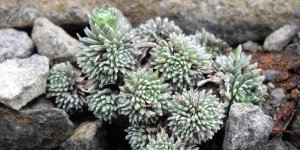Science News

A hot, metallic, Earth-sized planet with a density similar to Mercury – situated 339 million light years away — has been detected and characterised by a global team of astronomers. »

Australian scientists say a powerful ground-based laser targeting space junk will be ready for use next year. They say there are hundreds of thousands of pieces of debris circling the Earth that have the potential to damage or destroy satellites. »

Immune cells called microglia can completely repopulate themselves in the retina after being nearly eliminated, according to a new study in mice from scientists at the National Eye Institute. »

The world's largest collection of ocean garbage floating in the Pacific Ocean, halfway between Hawaii and California, is now bigger than France, Germany and Spain combined. »

Airborne soot produced by wildfires and fossil-fuel combustion and transported to the remote McMurdo Dry Valleys of Antarctica contains levels of black carbon too low to contribute significantly to the melting of local glaciers. »

Memories of the largest lava flood in the history of Iceland, recorded in an apocalyptic medieval poem, were used to drive the island’s conversion to Christianity, new research suggests. »

The most common type of arrhythmia, atrial fibrillation is an irregular beating of the heart that can lead to stroke, blood clots, or heart failure if left unchecked. And unless an electrocardiogram is being used, it can be difficult to detect. »

Archaeologists from the University of Granada have carried out excavations in the Biniadris Cave located on the Balearic Island of Menorca, uncovering enigmatic funeral rituals. »

A new study suggests that how empathic we are is not just a result of our upbringing and experience but also partly a result of our genes. »

Researchers are developing a promising alternative to antibiotic treatment for infections caused by Klebsiella pneumoniae bacteria resistant to carbapenem antibiotics. »

Astronomers have made the most precise measurement to date of the rate at which the universe is expanding, but the new number remains at odds with independent measurements of the early universe’s expansion, which could mean that there is something unknown about the makeup of the universe. »

Permafrost in the coldest northern Arctic -- formerly thought to be at least temporarily shielded from global warming by its extreme environment -- will thaw enough to become a permanent source of carbon to the atmosphere in this century, with the peak transition occurring in 40 to 60 years, according to a new NASA-led study. »

Farmers are reducing the environmental impacts of pesticide use by attracting birds of prey to their lands. In some areas, American kestrels -- small falcons -- are replacing chemicals by keeping pests and invasive species away from crops. »

UGR researchers, in collaboration with the company Puratos, have conducted an in-depth study on the potential benefits of a cereal-based bread enriched with soluble fibre, proteins and dried fruit. »

A rare mineral with potential industrial and medical applications has been discovered on alpine plants at Cambridge University Botanic Garden. »

If microbes can live in the most extreme regions on Earth, scientists say it is quite possible they can live on other celestial bodies. »

The tale of the tortoise and the hare is being retold. In Alaska's far north, it's become the race of the white spruce tree and the snowshoe hare. »

A new study of TV-watching great tits reveals how they learn through observation. Social interactions within a predator species can have “evolutionary consequences” for potential prey – such as the conspicuous warning colours of insects like ladybirds. »

An international group of researchers has found that plastic trash entering the world’s oceans attracts microbes that cause corals to sicken and die. »

A NASA study based on an innovative technique for crunching torrents of satellite data provides the clearest picture yet of changes in Antarctic ice flow into the ocean. »

Petrobras has been working on the development of pioneering technology for the production of biodiesel from microalgae—an alternative to oil-derived fuels used in cars or any other diesel-powered vehicles. »

Our Milky Way and the Andromeda galaxy—two giant galaxies in our local patch of the universe—are heading for an immense collision with each other in only a few billion years’ time. »

Researchers from the University of Granada have established that individuals who frequently use self-defeating humour—aimed at gaining the approval of others through self-mockery—exhibit greater levels of psychological well-being. »

Scientists from The University of Manchester have successfully produced human kidney tissue within a living organism which is able to produce urine, a first for medical science. »

Scientists thought that star-shaped brain cells called astrocytes were steady, quiet supporters of their talkative, wire-like neighbors, called neurons. »

Ultrafine aerosol particles found in polluted urban air can contribute to more intense storms in the Amazon rainforest, with potential knock-on effects for weather and climate patterns in the region and beyond, researchers have warned. »

Researchers using a high-tech aerial mapping scanner have discovered the ruins of tens of thousands of ancient Mayan structures that have been hidden and preserved for centuries under northern Guatemala's thick jungle. »

A team of scientists from the Chinese Academy of Medical Sciences in Shanghai, China have announced the first-ever cloning of a primate from post-embryonic cells, namely two macaque monkeys. »

Astronomers using ESO’s MUSE instrument on the Very Large Telescope in Chile have discovered a star in the cluster NGC 3201 that is behaving very strangely. »

In a new mouse study, scientists link changes in the gut caused by a high-salt diet to impaired blood flow in the brain. This reduced blood flow can eventually lead to impaired cognition that could be reversed by changing back to a normal diet. »

Pinching your nose while clamping your mouth shut to contain a forceful sneeze isn't a good idea, warn doctors. »

Asteroid 2002 AJ129 will make a close approach to Earth on Feb. 4, 2018 at 1:30 p.m. PST (4:30 p.m. EST / 21:30 UTC). At the time of closest approach, the asteroid will be no closer than 10 times the distance between Earth and the Moon. »

Sharks have a reputation as ravenous hunters and apex predators, but new analysis of fossil records shows that some of the earliest sharks might have been filter feeders, taking in water through their mouths and catching food particles -- think less great white and more anchovy, another filter feeder. »

A new visualization provides an exceptional virtual trip — complete with a 360-degree view — to the center of our home galaxy, the Milky Way. »

By tagging bone marrow cells of mice with a genetic label, or barcode, researchers were able to track and describe the family tree of individual blood cells as they form in their natural environment. »

For the first time, scientists have shown through direct satellite observations of the ozone hole that levels of ozone-destroying chlorine are declining, resulting in less ozone depletion. »

Diet helps people prevent and treat high blood pressure, lower blood cholesterol. »

A 60-year-old mystery about the source of energetic, potentially damaging particles in Earth's radiation belts has been solved using data from a shoebox-sized satellite built and operated by students. The satellite is called a CubeSat. »

A promising approach to post-operative incision-site pain control uses a naturally occurring plant molecule called resiniferatoxin (RTX). RTX is found in Euphorbia resinifera, a cactus-like plant native to Morocco, which is 500 times more potent than the chemical that produces heat in hot peppers, and may help limit the use of opioid medication while in the hospital and during home recovery. »

A shorter life may be the price an organism pays for coping with the natural assaults of daily living. »

Astronomers using ESO’s Very Large Telescope have for the first time directly observed granulation patterns on the surface of a star outside the Solar System — the ageing red giant π1 Gruis. »

As far our brain is concerned, talking to ourselves in our heads may be fundamentally the same as speaking our thoughts out loud, new research shows. »

Loss of water from the rocks of California's Sierra Nevada caused the mountain range to rise nearly an inch (24 millimeters) in height during the drought years from October 2011 to October 2015. »

The East Antarctic Ice Sheet locks away enough water to raise sea level an estimated 53 meters, more than any other ice sheet on the planet. It's also thought to be among the most stable, not gaining or losing mass even as ice sheets in West Antarctica and Greenland shrink. But new research found that the East Antarctic Ice Sheet may not be as stable as it seems. »

The dwarf planet Ceres look quite dark, but with notable exceptions. These exceptions are the hundreds of bright areas that stand out in images Dawn has returned. Now, scientists have a better sense of how these reflective areas formed and changed over time -- processes indicative of an active, evolving world. »

Trees growing in floodplains surrounding the Amazon river emit up to 20 million tonnes of methane gas (CH4) to the atmosphere every year. »

When we sleep, our organism goes through different phases of sleep, however the brain remains interconnected during non-REM sleep, which was thought not to happen. »

Trees growing atop granite in the southern Sierra Nevada Mountains rely on nutrients from windborne dust more than on nutrients from the underlying bedrock. »

Scientists have uncovered a rare relic from the early universe: the farthest known supermassive black hole. This matter-eating beast is 800 million times the mass of our Sun, which is astonishingly large for its young age. »
